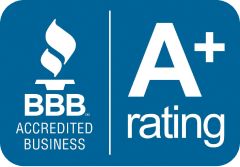When a person has a serious medical issue, like a broken bone from an accident or a heart attack, they usually need to be admitted to the hospital. Your time in the hospital may be brief, but you may still require help upon returning home. Medicare covers some of the costs of home health care so you can get better faster.
Medicare Parts A and B both pay for home health care, so you don’t have to worry about whether or not you’ll be able to afford it. If you are unable to leave your house but still need competent medical attention, Medicare Part B may cover your care. Medicare Part A will pay for medical treatment provided in the comfort of your own homes in certain circumstances, such as following a stay in the hospital or a skilled nursing facility.
Just what is it that those receiving medical attention at home might expect? Health services and medical equipment are brought to the patient’s house so they can mend in comfort. When someone is sick or injured, they may require a variety of services that can be provided in the comfort of their own home through the field of home health care. Medicare coverage for what kinds of home health care services? Skilled nursing, skilled therapy, and home health aide services are all covered under Medicare’s home health benefits.
What are Medicare’s criteria for providing in-home nursing care?
First, you need to meet these requirements to be eligible for home health care:
- Meet Medicare and Medicaid Services (CMS) standards for homebound status,
- need occasional or intermittent specialized assistance to enhance, preserve, avoid, or halt the progression of an existing health condition,
- Have a documented in-person appointment with your doctor, physician’s assistant, nurse practitioner, or clinical nurse specialist
1. Either 1. three months before home health care begins, or
2. within one month after the start of home health care.
- Get service from a home health agency that is covered by Medicare.
But could you elaborate on what that means? Imagine you take a spill and need knee surgery. Although you’ve been hospitalized for at least three days, it’s time for you to go home even though you’re still not 100 percent recovered. Your doctor will note that you are homebound and require temporary skilled care in your discharge paperwork. In addition, a care plan outlining the specific medical services and medical devices you’ll require during your treatment will be included in the paperwork you’ll be submitting to Medicare and other healthcare providers. When this occurs, you can start receiving Medicare-approved home healthcare services. Your Medicare out-of-pocket payments can be minimized by using a Medicare-approved home health care service.
For how long does Medicare cover home health care services? If you require skilled nursing care on an intermittent basis, Medicare may cover home health services provided to you. Care required for fewer than 7 days per week, or less than 8 hours per day, for a maximum of 21 days is considered intermittent. If your doctor has a strong notion of when you’ll no longer need skilled nursing care daily, you may have your care extended beyond the initial three weeks.
When you need expert nursing care around the clock, you probably won’t be covered by Medicare’s home health coverage.
2. Medicare only covers care for specific services.
Home health care agencies that have been verified as providing quality care to those who qualify offer both nursing and rehabilitation services. Home health care can refer to a wide variety of services, including but not limited to physical therapy, occupational therapy, speech-language pathology, medical social services, medical supplies, and more. New legal developments could expand access to telehealth services.
Your home health agency is required to notify you in writing (through an Advance Beneficiary Notice of Noncoverage) if Medicare will not pay for any of your in-home services (ABN). An appeal can be submitted if you disagree with Medicare’s decision to deny coverage.
The use of mobility aids, such as a wheelchair or walker, may be necessary for you to have at home while you are recuperating there. As long as it fits Medicare’s requirements, Medicare will also pay for durable medical equipment at a rate of 80% of the Medicare-approved price. Your home healthcare organization may be able to provide you with the necessary equipment and have it shipped right to your house.
3. If you are enrolled in Original Medicare, you pay nothing for home healthcare services.
However, the regular Part B deductible still applies, and you may be responsible for 20% of the Medicare-approved amount for durable medical equipment. Beneficiaries enrolled in Medicare Advantage plans may need to inquire with their plan about the specifics of how they provide home health care benefits covered by Medicare, including any associated costs and benefits.
Some home healthcare agencies may recommend services that are not covered by Medicare, so it’s important to clarify this with the agency ahead of time. Before beginning care, home health agencies are required to provide you with a written estimate of costs.
4. Custodial care (long-term care) is non-skilled personal care.
Medicare coverage for home care (as opposed to home health care) services? To put it simply, no. Bathing, dressing, eating, doing housework, and self-administered medications like insulin are all examples of ADLs that fall under the category of “non-skilled personal care.” Home care agencies provide these services and should not be confused with home healthcare agencies that specialize in providing healthcare in the comfort of one’s own home.
5. Medicare does not cover custodial care or nursing home care.
Medicare’s coverage for home health care is meant to be a temporary measure, as the service is not intended to be provided on an ongoing basis. 24-hour care, meal delivery, homemaker services, and personal care are examples of services that Medicare typically will not fund. Services that help elders remain in their homes are occasionally covered by Medicaid. Each state’s Home and Community Based Services program has its own set of eligibility conditions and services it covers.
6. Some states offer custodial care programs for older adults.
Some state Medicaid programs provide services including adult day care, chore help, and even a homemaker. Low-income families who meet the requirements may also be eligible for vouchers.
BenefitsCheckUp® is a free online screening tool from NCOA that can help you find these programs. Local respite care, senior day care, and state Medicaid programs are just a few of the many that are screened for by this helpful tool. If you are interested in receiving free, impartial Medicare advice provided by the federal government, we suggest getting in touch with your state’s Health Insurance Assistance Program (SHIP).
7. Knowing the difference between home health care and home care is important.
Despite this, it can sometimes be difficult to understand the differences between home care and home health care. Here’s a handy comparison table that breaks down key details including service scope, registration prerequisites, and accepted payment methods.








